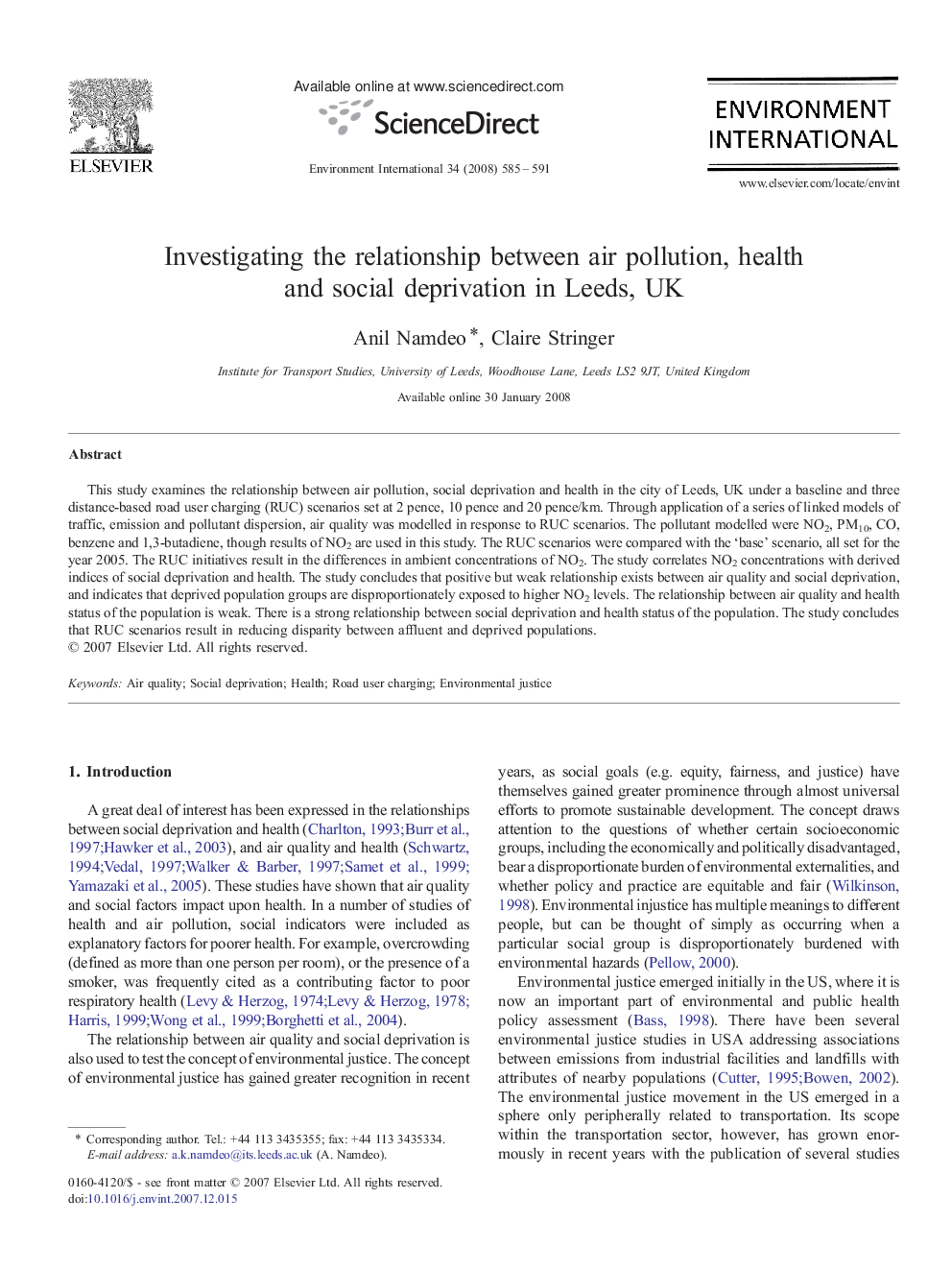| Article ID | Journal | Published Year | Pages | File Type |
|---|---|---|---|---|
| 4423815 | Environment International | 2008 | 7 Pages |
This study examines the relationship between air pollution, social deprivation and health in the city of Leeds, UK under a baseline and three distance-based road user charging (RUC) scenarios set at 2 pence, 10 pence and 20 pence/km. Through application of a series of linked models of traffic, emission and pollutant dispersion, air quality was modelled in response to RUC scenarios. The pollutant modelled were NO2, PM10, CO, benzene and 1,3-butadiene, though results of NO2 are used in this study. The RUC scenarios were compared with the ‘base’ scenario, all set for the year 2005. The RUC initiatives result in the differences in ambient concentrations of NO2. The study correlates NO2 concentrations with derived indices of social deprivation and health. The study concludes that positive but weak relationship exists between air quality and social deprivation, and indicates that deprived population groups are disproportionately exposed to higher NO2 levels. The relationship between air quality and health status of the population is weak. There is a strong relationship between social deprivation and health status of the population. The study concludes that RUC scenarios result in reducing disparity between affluent and deprived populations.
